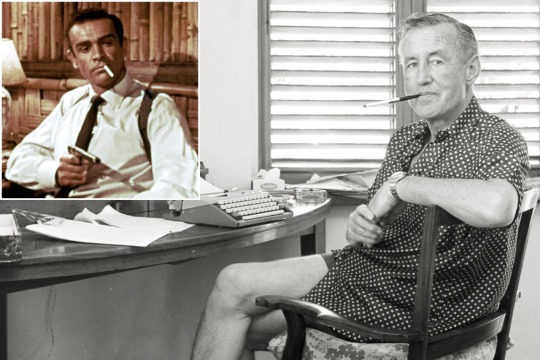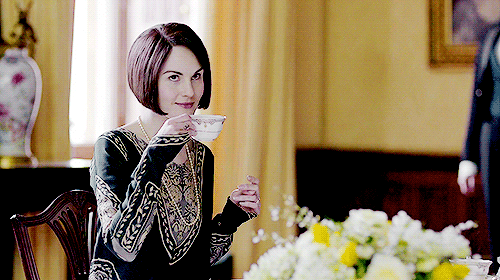Text
Anonymous asked: What’s your ranking of the actors who have played James Bond? And why?
I have actually answered that question when I was asked who was the best Bond. My immediate response to ask which Bond are we talking about? Arguably there are only two ways that Bond has been played.
I made a distinction between the best cinematic Bond and the best literary Bond. If you want to know more then please click here on my past post:
https://blackswaneuroparedux.tumblr.com/post/634419839458525184/anonymous-asked-much-appreciate-your-homage-posts
For me when I watch a Bond movie I always have two things running concurrently in my head. One is Sean Connery whose charismatic take on the character forms the template of the cinematic Bond that not even Fleming would have imagined.
The other thing in my head is the literary Bond as envisaged by Fleming in the books. I’m a huge fan of the books and it’s always been onbvious to those who have read the actual Bond books how far or close any of the cinematic Bonds come close to realising Bond on the written page. I would argue only Timothy Dalton and Daniel Craig would really fall in to this latter category.
Indeed Ian Fleming doesn’t tell us much about Bond other than his appearance in his books. Indeed - as I mentioned in my past blog post on Connery as Bond - Fleming wasn’t convinced by Connery as Bond. He was reported to have said, ‘I’m looking for Commander Bond and not an overgrown stuntman’ and even dismissed Connery as “that fucking truck driver”. Fleming had good reason to rage. His Bond as written in the books was someone like him.

Like Fleming, Bond was an Eton educated Englishman; an officer and a (rogue) gentleman who was a lieutenant-commander in Naval Intelligence. As Connery began to wow and win over Fleming as Bond, Fleming had a change of heart. Fleming in his later Bond books re-wrote a half-Scottish ancestry for Bond as a tribute to Connery’s portrayal. Bond’s Scottish father was a Royal Navy captain and later an arms dealer, Andrew Bond from Glencoe; and his mother, Monique Delacroix, was Swiss from an industrial family. Bond himself was born in Zurich. Bond isn’t English at all but half-Scots and half-Swiss according to literary canon.
James Bond is a flesh and blood character with a specific genealogical history - whether in the books or on the screen. This Bond has literary back story that is canon and makes him who he is. Bond does transcend time - he can’t be 38 years old for over 75 years in the real world - but at the same time his character only makes sense when rooted in a specific historic context we know existed (and still exists) and not some wishy washy make believe fantasy of British society. He’s an Old Etonian and therefore an upper middle class male product of the British establishment that is identifiable in a very British cultural context.
In the Fleming books, James Bond’s didn’t go to Oxford or Cambridge or any of the other great universities of Britain. In the books Bond’s education is not gone into much detail. We know he was raised overseas until he was orphaned at the age of 11 when his parents died in a mountaineering accident near Chamonix in the Alps. He is home schooled for a time by an aunt, Charmain Bond, in the English village of Pett Bottom before being packed off to boarding school at Eton around 12 years old. Bond doesn’t stay long as he gets expelled for playing around with a maid. He is then sent to his father’s boarding school in Scotland, Fettes College.

Bond is then briefly attends the University of Geneva - as Ian Fleming did - before being taught to ski in Kitzbühel. In 1941 Bond joins a branch of what was to become the Ministry of Defence and becomes a lieutenant in the Royal Naval Volunteer Reserve, ending the war as a commander. Bond applies to M for a position within the “Secret Service”, part of the HM Civil Service, and rises to the rank of principal officer. And that’s it.
There are many reasons for the successful longevity of James Bond in popular culture and literature but perhaps one of the most pertinent to our discussion is that the cinematic James Bond is actually a blank slate and therefore malleable as a screen character and so he can capture the current zeitgeist in time.
This ability of the film to adapt to different generations while remaining relevant is an important factor for its longevity. For example, the early James Bond films were unashamedly sexist with characters using women as objects and discarding them. In the most recent James Bond films, certainly starting with Timothy Dalton, there is a subtle change in attitude with a few chauvinist attitudes.
James Bond today is more serious, seduces fewer women, and is more respectful towards women in his life, including his boss. This shows how the film changes concerning the rise of feminism in the West. For example, Miss Moneypenny used to be a minor character in the very first James Bond films. Today, she is more formidable and doesn’t tolerate sexist remarks. Many would also say the current Bond franchise has gone woke. It’s an argument for another time.

My point is that perhaps it is precisely because of this blank slate malleability that has allowed different actors that have been cast to play James Bond their own way - rather than get a straight like for like Scottish sounding actor to replacing Connery for example the film producers went across to Moore via Lazenby for example - and letting each actor imbue the super spy with different moods. They each added their own colour from the same broad palate to create different tones. However, each of these characters maintained the essential character that defines James Bond. The actors have broadly stayed true to the inherent mix of character and class associated with James Bond.
I do vaguely remember the hullabaloo and hand wringing around Daniel Craig playing Bond because he didn’t conform to the traditional tall, dark, and handsome trope of James Bond super suave spy. People couldn’t get past his blond hair. Some still can’t. But in my humble opinion he has been an outstanding James Bond and has reimagined Bond in a fresh and exciting way. Craig is in fact mining the Fleming books for his characterisation of Bond as a suave, gritty, humourless killer of the books. Dalton got there before him but that’s a moot point. To our current generation Craig has modernised Bond and dusted 007 down from being a relic of the Cold War to being a relevant 21st Century super spy.

For me the best actor hands down was Timothy Dalton - he had the Shakespearian pedigree and it showed.
The best literary Bond actor would still be Timothy Dalton for me and Daniel Craig a very close second.
The best cinematic Bond: It can’t be anyone but Sean Connery.

Thanks for your question.
78 notes
·
View notes
Photo

suya0122 : https://www.instagram.com/p/BwyYRA9hUHM/
5K notes
·
View notes














